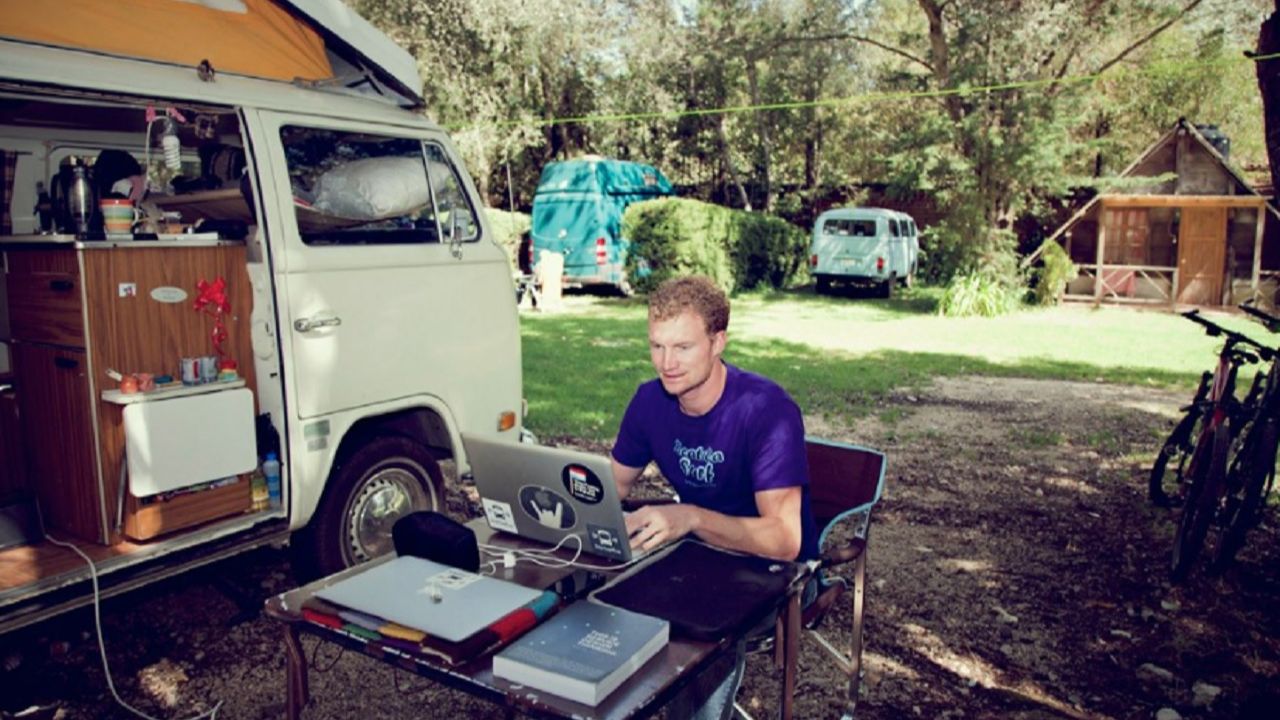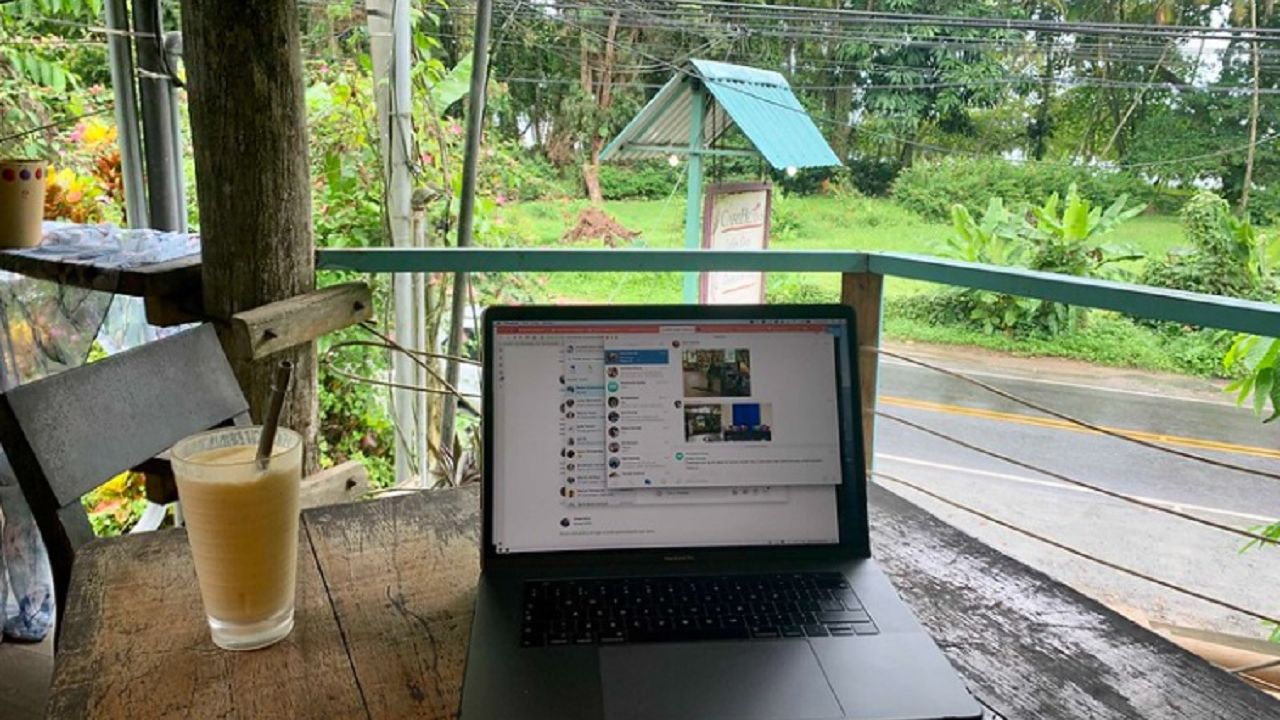
In today's digital age, the concept of a traditional office job is rapidly evolving as more individuals embrace the freedom and flexibility of the nomadic lifestyle. However, it is not without its challenges.
This article explores the top 10 challenges faced by digital nomads, ranging from reliable internet connections to cultural adaptation. By understanding and navigating these obstacles, aspiring and existing digital nomads can better equip themselves for success in their pursuit of a location-independent career.
Reliable Internet Connection
How can digital nomads ensure a reliable internet connection while living a nomadic lifestyle?
One of the key challenges faced by digital nomads is finding reliable WiFi availability and dealing with connectivity issues. To overcome this hurdle, there are a few practical strategies that can be implemented.
Firstly, it is essential to research and choose accommodation or coworking spaces that offer reliable and high-speed internet connections.
It is also beneficial to invest in portable WiFi devices or mobile data plans to ensure connectivity on the go.
Additionally, carrying a backup WiFi hotspot or dongle can be a lifesaver during emergencies or in areas with limited connectivity.

Lastly, staying up to date with the latest technological advancements and tools for enhancing internet connectivity can greatly improve the digital nomad experience.
Time Zone Management
Time zone management is a crucial aspect of the digital nomad lifestyle. It directly impacts remote work coordination and can contribute to jet lag. Coordinating work schedules with clients or team members in different time zones can be challenging. It requires careful planning and effective communication.
Frequent travel across time zones can also disrupt sleep patterns and result in jet lag. This can affect productivity and overall well-being.
Remote Work Coordination
Effective remote work coordination requires careful management of time zones. When working with a virtual team spread across different regions, it is crucial to find ways to collaborate efficiently and ensure everyone is on the same page.
Here are some key challenges and strategies for remote work coordination:
Scheduling: Coordinate meetings and deadlines by considering time zone differences. Use tools like World Time Buddy or Timezone.io to easily find overlapping working hours.
Communication: Establish clear communication channels and expectations to bridge the gap between team members. Utilize project management tools like Trello or Asana to track progress and facilitate real-time collaboration.

Flexibility: Embrace flexible work arrangements to accommodate diverse time zones. Encourage asynchronous communication and provide autonomy for team members to work at their own pace.
Time management: Encourage time blocking and prioritization techniques to maintain productivity in different time zones. Establish guidelines for response times and availability to ensure efficient workflow.
Jet Lag Impact
One significant challenge faced by digital nomads in their nomadic lifestyle is the impact of jet lag on their ability to effectively manage time zones. Jet lag occurs when the body's internal clock is disrupted due to rapid travel across multiple time zones.
For digital nomads, who often find themselves hopping from one country to another, this can greatly affect their productivity and overall well-being. Language immersion, a common pursuit among digital nomads, can be hindered by jet lag, as it requires focus and mental clarity. Furthermore, sleep deprivation caused by jet lag can lead to decreased cognitive function and increased stress levels, making it even more challenging for digital nomads to adapt to new time zones.
To overcome this challenge, digital nomads should prioritize sleep, establish a consistent routine, and gradually adjust their schedules when transitioning to new time zones.
Work-Life Balance
Achieving a harmonious work-life balance is a paramount challenge for digital nomads. When your work and life blend seamlessly, it becomes difficult to create boundaries and maintain a healthy balance. Here are some practical tips to help you navigate this challenge:
Work-life integration: Instead of trying to separate work and life, find ways to integrate them. Set flexible working hours that align with your lifestyle and prioritize tasks based on their importance and urgency.

Digital detox: Take regular breaks from technology to disconnect from work and recharge. Set boundaries by establishing specific times when you won't check emails or engage in work-related activities.
Establish routines: Create a daily routine that includes dedicated time for work, exercise, leisure, and personal activities. Having a structured schedule will help you maintain a sense of balance and ensure you don't neglect any aspect of your life.
Self-care: Prioritize self-care activities like exercise, meditation, and hobbies. Investing time in activities that bring you joy and relaxation will help you maintain a healthy work-life balance and prevent burnout.
Cultural Adaptation
How can digital nomads effectively adapt to different cultures while navigating the nomadic life?
Cultural adaptation is a crucial skill for digital nomads who constantly find themselves in new environments. To successfully adapt to different cultures, digital nomads should focus on developing their cross-cultural communication and intercultural skills. This involves being open-minded, curious, and respectful towards the local customs, traditions, and social norms of the places they visit.
It is important to actively seek opportunities to learn about the local culture, engage with the local community, and build relationships with locals. By understanding and appreciating cultural differences, digital nomads can effectively communicate and interact with people from diverse backgrounds, which in turn will enhance their overall nomadic experience.
Legal Issues
As digital nomads navigate the nomadic life, they often encounter various legal issues that can significantly impact their ability to work and live in different countries. It is important for digital nomads to be aware of these legal challenges and take the necessary steps to address them.

Some common legal issues faced by digital nomads include:
Visa requirements: Digital nomads need to research and understand the visa requirements of each country they plan to visit or reside in. Some countries have specific visas for remote workers, while others may have restrictions on working while on a tourist visa. It is crucial to comply with visa regulations to avoid legal consequences.
Intellectual property: Digital nomads who create and distribute content online need to understand the intellectual property laws of the countries they operate in. This includes copyright, trademark, and licensing regulations. Protecting one's intellectual property and respecting the rights of others is essential to avoid legal disputes.
Tax obligations: Digital nomads may have complex tax obligations as they earn income from various countries. It is important to consult with tax professionals or seek advice on how to fulfill tax obligations in a compliant and efficient manner.
Contractual agreements: Digital nomads often work with clients and collaborators from different countries. Understanding the legal implications of contractual agreements and ensuring they are drafted in a way that protects the interests of all parties involved is crucial.
Health Insurance
Digital nomads' health insurance is a crucial aspect of their nomadic lifestyle. As they travel and work remotely, it is important for digital nomads to have access to healthcare wherever they are.
Many digital nomad communities offer resources and information about health insurance options tailored to their unique needs. One common choice is travel insurance, which can provide coverage for medical expenses and emergency medical evacuations. Travel insurance plans vary in coverage and cost, so it is important for digital nomads to research and compare different options to find the most suitable one for their specific needs.

It is also advisable for digital nomads to consider purchasing an insurance plan that covers pre-existing conditions, as this can provide additional peace of mind while traveling.
Taxation
Navigating the complexities of taxation becomes a significant challenge for digital nomads as they embrace a nomadic lifestyle. Here are some taxation challenges faced by digital nomads and strategies to overcome them:
Residency and tax obligations: Digital nomads need to determine their tax residency status and understand the tax obligations in each country they visit.
Double taxation: Digital nomads may be subject to double taxation if they are considered tax residents in multiple countries. Utilizing tax treaties and seeking professional advice can help minimize this issue.
Record-keeping and documentation: Maintaining accurate records of income, expenses, and travel can be challenging for digital nomads. Utilizing digital tools and apps can simplify this process.
Tax optimization: Digital nomads can explore tax optimization strategies such as setting up a business entity in a tax-friendly jurisdiction or taking advantage of tax deductions specific to their digital nomad lifestyle.
Loneliness
One of the major challenges faced by digital nomads is the sense of isolation that can arise from constant travel and living in unfamiliar environments. Loneliness can have a significant impact on mental health and well-being, making it essential for digital nomads to develop effective coping strategies.

To combat loneliness, it is important for digital nomads to prioritize building connections and maintaining relationships. This can be done through joining digital nomad communities, attending meetups and conferences, and actively seeking out like-minded individuals. Embracing technology can also help bridge the gap by utilizing video calls and social media platforms to stay connected with friends and family.
Engaging in regular self-care activities is crucial for maintaining good mental health. This can include practicing mindfulness, engaging in hobbies or activities that bring joy, and setting aside time for relaxation and reflection. Additionally, seeking professional help or counseling can provide valuable support during times of loneliness and emotional distress.
Language Barrier
Language barrier is a common challenge faced by digital nomads as they travel to different countries. Cultural differences can make it difficult to communicate effectively, leading to misunderstandings and misinterpretations.
However, with the help of translation apps and by making an effort to learn the local language, digital nomads can overcome these obstacles and improve their interactions with the local community.
Cultural Differences
Communication can be a significant obstacle for digital nomads due to cultural differences and the challenge of overcoming language barriers. When immersing oneself in a new culture, it is essential to understand the local customs and traditions to avoid misunderstandings.
Here are some practical tips to navigate the cultural differences and language barrier as a digital nomad:
Cultural immersion: Take the time to learn about the local customs, traditions, and social etiquette of the country you are visiting. This will help you better understand and connect with the locals.

Language exchange: Engage in language exchange programs or find language partners to practice the local language and improve your communication skills.
Use translation tools: Make use of translation apps or devices to overcome language barriers during your travels.
Non-verbal communication: Learn to rely on non-verbal cues such as body language, facial expressions, and gestures to enhance cross-cultural communication.
Translation Apps
How can digital nomads overcome the language barrier when navigating new cultures?
One practical solution is to utilize translation apps and language learning tools. These apps can be a great asset in breaking down communication barriers and facilitating effective communication with locals.
Translation apps such as Google Translate or iTranslate can instantly translate words, phrases, and even whole sentences, making it easier for digital nomads to communicate and understand the local language.
Additionally, language learning tools like Duolingo or Babbel can help digital nomads learn the basics of a new language, enabling them to have more meaningful interactions and navigate their surroundings with greater ease.

Local Language Learning
Utilizing translation apps and language learning tools can greatly aid digital nomads in overcoming the language barrier, enabling them to navigate new cultures and engage in more meaningful interactions with locals.
Here are some practical ways to enhance local language learning:
Language Exchange: Engaging in language exchange programs or finding language partners can provide an opportunity to practice conversational skills with native speakers. This not only improves language proficiency but also fosters cultural understanding.
Language Immersion: Immerse yourself in the local language by attending language courses or joining language immersion programs. Living and learning in an environment where the language is spoken daily enhances language acquisition.
Online Language Resources: Take advantage of online language resources, such as language learning websites, podcasts, and videos. These resources offer flexibility and convenience for digital nomads to learn at their own pace.
Cultural Immersion: Learn the language through cultural immersion. Engaging in local activities, attending events, and interacting with locals provide practical experiences that enhance language learning in a meaningful way.
Accommodation Booking
Finding suitable accommodation is a crucial aspect of the digital nomad lifestyle. As a digital nomad, you have the freedom to choose from a variety of alternative accommodations that suit your needs and preferences.

When it comes to booking accommodations, there are numerous platforms available that cater specifically to digital nomads. These booking platforms allow you to search for and book accommodations in various locations around the world, providing you with the flexibility and convenience you need.
Some popular booking platforms for digital nomads include Airbnb, Booking.com, and NomadX. These platforms offer a wide range of options, from private rooms to entire apartments, giving you the freedom to find a place that aligns with your budget and lifestyle.
Frequently Asked Questions
How Can Digital Nomads Ensure a Reliable Internet Connection While Traveling?
To ensure a reliable internet connection while traveling, digital nomads can manage remote work demands by investing in portable WiFi devices or using local SIM cards. Additionally, they can find reliable coworking spaces or coffee shops with strong WiFi signals for uninterrupted work.
What Are Some Strategies for Effectively Managing Different Time Zones as a Digital Nomad?
Time management techniques for digital nomads include setting a consistent schedule, using productivity tools like time zone converters, and prioritizing tasks. Productivity hacks for managing different time zones involve planning ahead, adjusting sleep schedules, and utilizing communication tools effectively.
How Can Digital Nomads Maintain a Healthy Work-Life Balance While Constantly on the Move?
Maintaining a healthy work-life balance while constantly on the move as a digital nomad requires prioritizing mental health and creating a productive workspace in unfamiliar environments. Strategies such as setting boundaries, practicing self-care, and utilizing technology can help achieve this balance.
What Are Some Tips for Adapting to New Cultures and Customs as a Digital Nomad?
Adapting to new cultures and customs as a digital nomad requires cultural immersion and overcoming language barriers. It is essential to research and learn about the local customs, traditions, and language to navigate and connect with the local community effectively.
What Legal Issues Should Digital Nomads Be Aware of When Working and Traveling Internationally?
Digital nomads need to be aware of visa requirements and tax obligations when working and traveling internationally. It is essential to research and understand the legalities of each country to ensure compliance and avoid any potential legal issues.

 Travel AdviceDigital NomadsExPat LivingTravel Content Creation HacksPlaces to VisitAdventure TravelPrivacy PolicyTerms And Conditions
Travel AdviceDigital NomadsExPat LivingTravel Content Creation HacksPlaces to VisitAdventure TravelPrivacy PolicyTerms And Conditions
